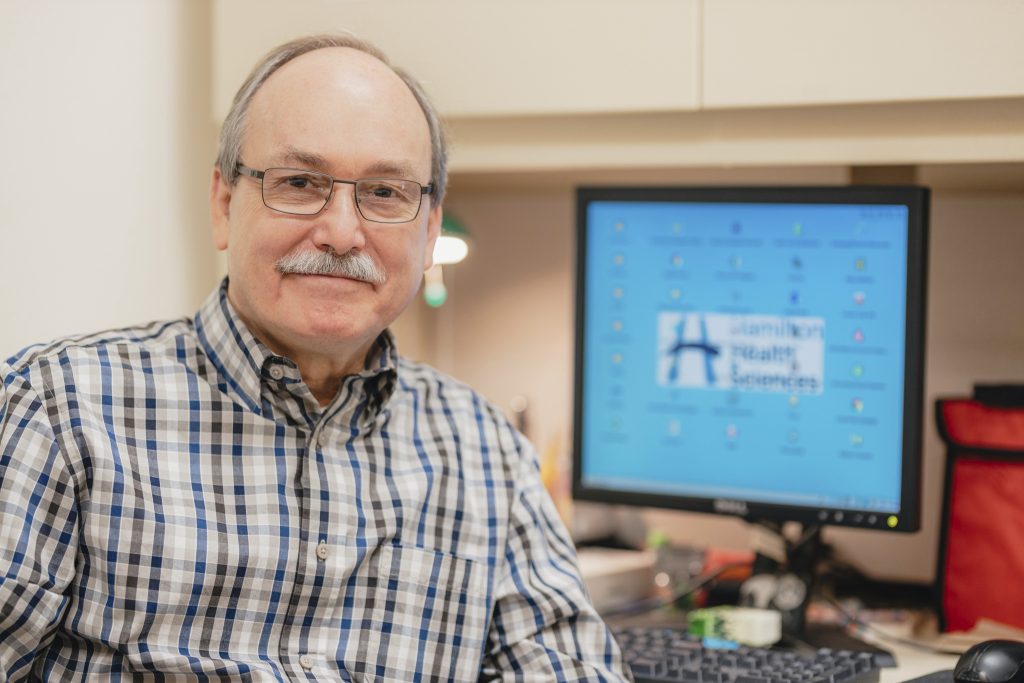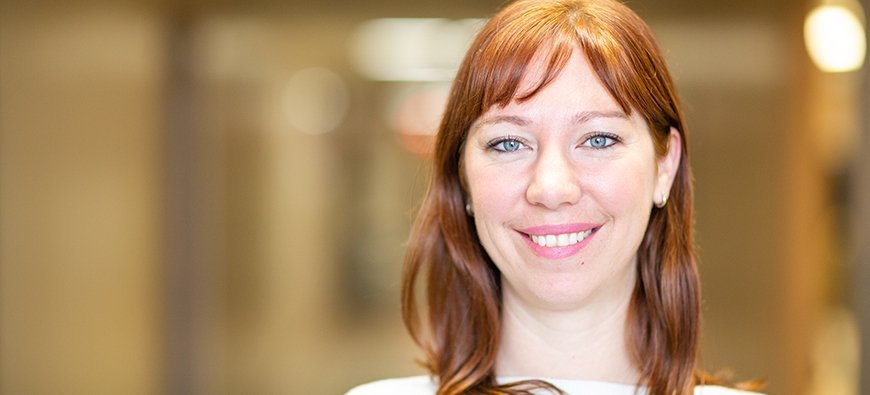
Providing psycho-spiritual encouragement and understanding
Psycho-spiritual practitioners, formerly known as chaplains, are vital members of the Hamilton Health Sciences (HHS) interprofessional health care team. They offer emotional and spiritual support to patients, families, and HHS staff during times of stress and anxiety. This has been particularly important recently during COVID-19.
For patients, psycho-spiritual practitioners can help from the moment the patient is admitted to hospital up until they’re discharged or until end of life.
“As soon as a patient enters the doors of any hospital, they enter a world that is foreign to them with its own unique challenges,” says Dave Jones, a psycho-spiritual practitioner at HHS. “Patients often arrive distressed, fearful, and anxious. And families are part of the journey, too. We’re here for both.”
Providing care for patients during critical moments can sometimes negatively affect health care workers as well.
“We’re also here for staff who are morally distressed,” says Jones. “This is especially true when they’re providing treatment which they know may be causing the patient pain or discomfort. They care deeply for their patients, and don’t want to see a patient suffer.”
Hear her distress
In normal times, Jones and his colleagues would provide their services around the clock. But the COVID-19 pandemic has interfered with their ability to continue with a demanding schedule.
“People need us mostly during the daytime, so that’s where we’re focusing our energy,” says Jones. “However, we still need to help people on weekends, so we have contract employees to assist our team.”
Her world has been turned upside down
Jones is currently helping a woman who’s fighting a life-limiting disease. The pandemic has affected her support, too.
“She has metastatic cancer. She’s also a single parent with a disabled child,” explains Jones. “Her world has been turned upside down. She worries about what will happen to her child after she dies. She has limited family support because of the pandemic. My role has been to hear her distress and provide psycho-spiritual encouragement and understanding.”
Available regardless of faith tradition
Psycho-spiritual practitioners can pray, meditate, or reflect with patients, families, and staff alike.
“If a patient self-identifies with a particular faith tradition and wants to speak to someone of that faith tradition, we reach out to whomever that may be,” says Jones. “We’re available to any patient regardless of faith tradition, or even no faith tradition. What we can provide is usually traditionally associated with pastoral care, but our skillset is much more extensive than that.”
Putting ‘confident’ in ‘confidential’
Patients, families, and hospital staff can rest assured that appointments with psycho-spiritual practitioners are kept confidential.
“With patients and their families, we mostly meet at the patient’s bedside. But we can also meet in my office, or anywhere else in the hospital setting that’s private,” says Jones. “When we meet with staff, we always talk in an area that’s private.”
Accreditation
Psycho-spiritual practitioners are registered psychotherapists with the College of Registered Psychotherapists of Ontario (CRPO) and are members of the Canadian Association of Spiritual Care, their professional accrediting body.
Getting in touch
Currently, HHS has five full-time practitioners and one part-time team member that offer support across Juravinski Hospital and Cancer Centre, Hamilton General Hospital, St. Peter’s Hospital, and McMaster University Medical Centre. Patients and family members interested in speaking with a psycho-spiritual practitioner should speak with a member of their health care team.
Learn more about psycho-spiritual care services at HHS.

